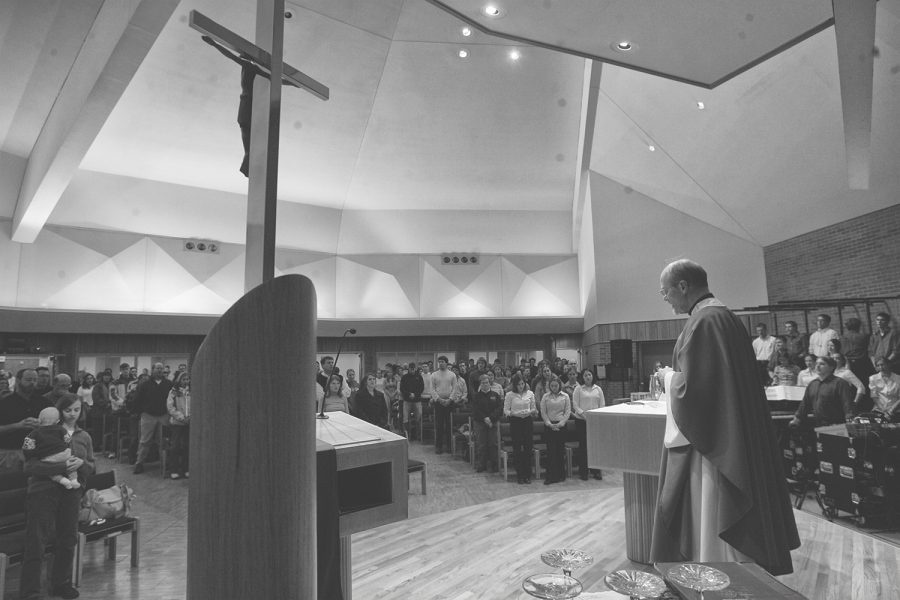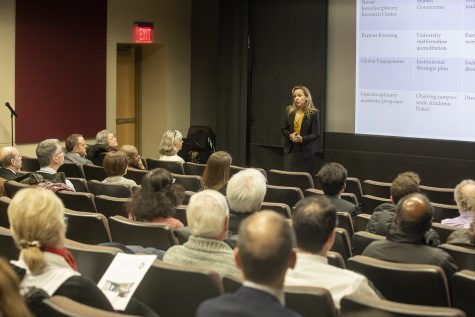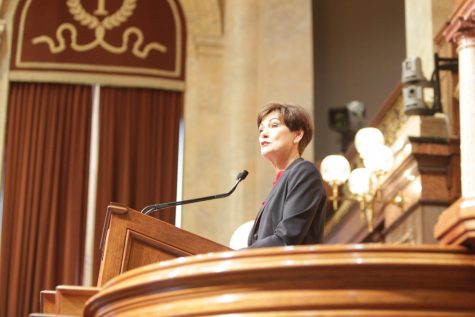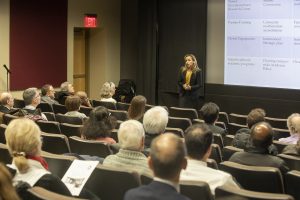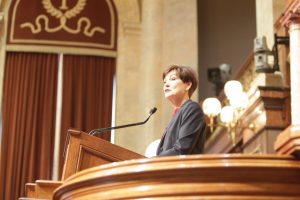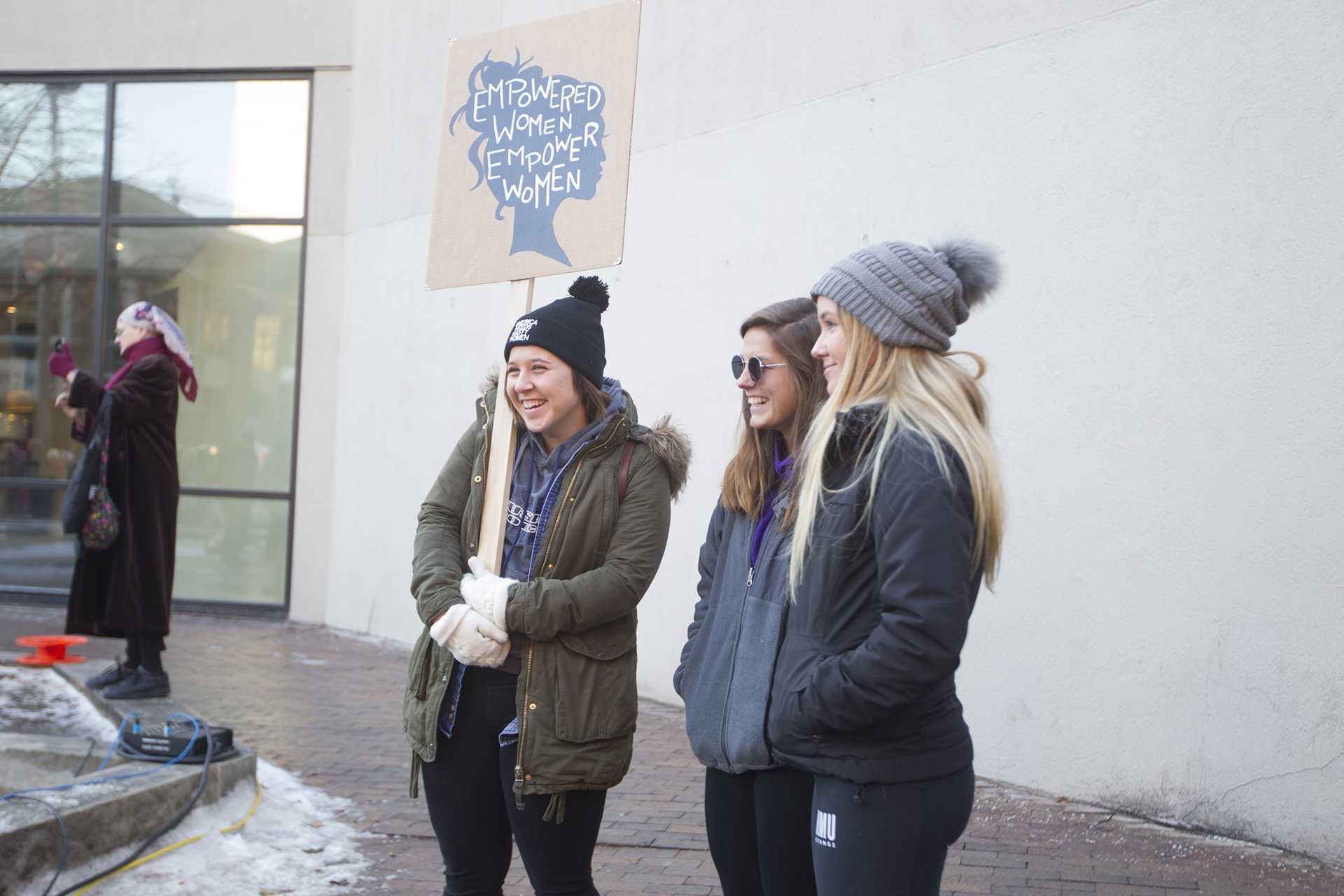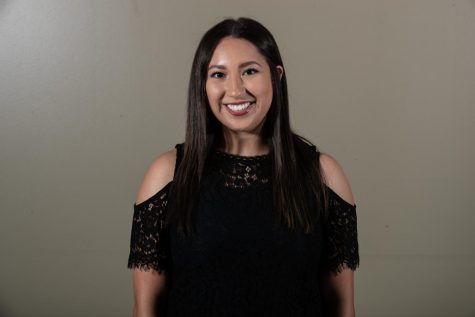Jaimes: Lent and the college Christian
The season of Lent will challenge many students, as they are away from their families for a majority of the 40 days.
Father Edward Fitzpatrick conducts an evening mass on Sunday at the Newman Catholic Student Center. A UI study recently found a correlation between attending religious services and a longer life expectancy.
March 5, 2019
Around 40 days from now, Christians around the world will gather to recognize the resurrection of Christ. But for today, they will wear ashes on their forehead, abstain from eating meat, and prepare for the season of Lent.
Lent is a period in the Christian liturgical calendar that marks the six weeks leading up to Easter. During this time, Christians will fast to replicate the 40 days of temptation Jesus faced while wandering the desert.
Having been raised Catholic, Lent was a season that I celebrated with the help of my family. At 13, I ate meatless meals with my family and joined them in giving up one luxury. For the longest time, I recognized the 40 days without a luxury of my choosing as the only meaning of Easter — and quickly forgot about the holiday until the next year. Spending this season at the UI, where students such as me aren’t forced to practice religion with their family, this sentiment might seem true to other Christians as well.
My first Ash Wednesday on a university campus was filled with many classmates sporting the same cross made out of ash on their foreheads. Each Mass on that day is packed, even with some parishioners finding a comfortable spot to sit in the lobby of the Newman Center. Each Mass, I’m overjoyed seeing how many students choose to celebrate out of their own free will.
RELATED: Jaimes: Where does hate have a home?
Masses typically get smaller and smaller moving away from Holy Week. There are empty seats and the term “chreaster” (a Christian only attending church on Christmas or Easter) seems a bit more relevant. Being a Christian does not require constant fasting outside of the Easter season, but the act of receiving ashes and fasting should not be a one-time display of faith.
While this article isn’t a grievance against chreasters, it’s a reminder to be more authentic in your form of worship — not for students to see or to please your family but for yourself. This problem is common, and the idea is even touched on in the Gospel of Matthew: “When you fast, do not look gloomy like the hypocrites. They neglect their appearance, so that they may appear to others to be fasting. But when you fast, anoint your head and wash your face, so that you may not appear to be fasting except to your Father, who is hidden.”
Navigating Lent on your own gives you the option to sink or swim in your religion. For students such as me, my first Lent alone was just a reminder on the calendar. On Fridays in Iowa City, my grandma could not be in the kitchen to cook me arroz con bacalao and my Jewish friends did not remind me to put down the slice of sausage pizza gripped in my hands. Spending this time on my own allowed me to find my place in the Church, and that was my choice.
It isn’t asked of us to be perfect Christians, but we should ask ourselves why we take the time to celebrate Ash Wednesday and Easter Sunday if it is just to please our families who are miles away from us. Why do we participate in superficial acts on these days instead of practicing their meaning internally, every day of the year?
Growing in the Church should not stop at Confirmation, under the watch of your mom and dad. As we continue to mature in college, we should have the integrity to step away from the religion we were born into or learn more about it and adopt it out of our own free will. This Easter season, don’t treat Lent as a chore but as a decision. That’s all it is: your decision.



